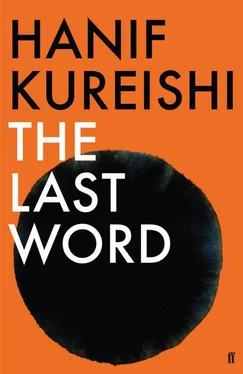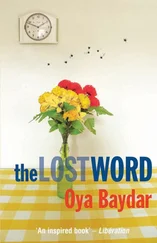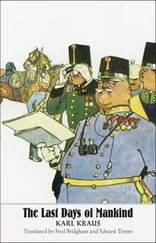His therapeutic charm offensive, and the fact she had little company, had made Liana indecently adhesive. The wisest thing for him to do, he figured after a few days — while he surveyed the material he might begin to look at — was to have breakfast at six thirty. After, he’d scoot off to do ‘research’ before experiencing the couple in their dressing gowns and hearing Mamoon complain about his eggs, the temperature of the toast, the fatal burden of being a writer with nothing left to say, and only blindness, incontinence, impotence, bad reviews, death and obscurity ahead of him.
After breakfast Liana would be busy instructing and harrying the staff, including two people who came to work in the garden, which gave Harry the opportunity to escape to the barn to which she had handed him the key, saying, ‘There, tesoro , now go — find him.’
He found, as he barged open the creaky door, that the place hadn’t been opened for some time, and was semi-derelict. Scattered around were unwanted books, discarded coats, busted furniture, mouse and bird mess, a pool table, boxes full of drafts of novels, and, most valuably, Mamoon’s first wife Peggy’s diaries in a wooden crate. Carefully, he lifted them out and wiped them with a cloth. Then he scrubbed down a table, found an unbroken chair, fixed up a light, and plunged in.
Mamoon had lived a long time, and written a lot: plays and adaptations of classics set in the Third World, essays, novels, some poetry. Harry’s work would be immense, and his most significant resource was Mamoon himself. Harry was intending to conduct detailed and serious interviews with him. He would hear it from the horse’s mouth; Mamoon’s view would be the coup. However, when Harry approached his subject and opened his mouth to ask him if he might spare a moment to answer a few questions, far from being co-operative, Mamoon hurried on, as if past a tabloid reporter. The fourth morning, after breakfast, when Harry had worked out that Mamoon would be crossing the yard to his study fifty metres away, he made sure to be lurking behind a tree, smoking. Spotting his prey, Harry suddenly dashed out. ‘Sir, sir—’ he began.
Mamoon put his head down and thrust his arms out, and beetled on.
Liana shot out of the kitchen. ‘What do you think you are doing? Never approach Mamoon when he is in the zone!’
‘When will he speak to me?’
‘He is deeply committed to you.’
‘Are you sure?’
‘I have to work on him. He has to be softened.’
‘Will you do that?’
‘Believe in me, darling boy. I will take you there. We will reach his marrow.’
While he waited to approach Mamoon’s marrow, Harry was at least pleased to see that the most accurate source of information about Mamoon’s early years as a writer were the journals which Peggy had kept from the beginning of their relationship. There were eleven volumes piled before him, in such tiny writing that Harry had to squint over them with a magnifying glass and ruler. They were also beautiful: Peggy had used numerous different coloured inks, writing at various angles across the page. Between the pages there were flowers, notes from Mamoon, an outline of his hand, cuttings from newspapers, Polaroids of her cats, lists, and postcards from friends. Since he had agreed not to remove or copy the diaries, which would soon be sent to America, Harry had to hurry through them, making notes as he went.
He had already begun to think of the young couple’s relationship in terms of chapters: the callow scholarship-winning Indian, down from Cambridge and living in London; the budding author also working as a journalist; the writer begins to make his name with an amusing and well observed novel about his father and the old man’s scoundrel poker-playing friends; he and Peggy marry and travel; he and Peggy settle down in the house, where Mamoon begins to write the long family novels set in colonial India that he would be remembered for, as well as sharp essays about power and empire, along with extensive profiles and interviews with dictators and the Third-World crazies created at the collapse of colonialism.
In the late morning Liana would bring Harry his coffee, along with half a baguette and some sardines. A woman of Rome, who had spent time in India with Mamoon, Liana wore bright shawls, vibrating bangles and heavy rings, along with wellington boots in various colours for tramping through the mud and rain, which was, Harry was learning, what people who lived in the country appeared to do a good deal of the time. Her overcoats — often in fur, and fashionably spattered with mud, creating a Jackson Pollock effect — looked expensive.
‘How’s darling misery-guts Peggy?’ Liana asked Harry, patting the pile of diaries and sitting right next to him. ‘Is she drunk again?’
Harry, from an academic family, had always been capable of hard work, of bearing a large load of necessary boredom. However, he was finding the diaries both alarming and monotonous, particularly the later pages where Peggy enjoyed describing her numerous symptoms: brain-splitting migraines, stomach aches, her fear of cancer, and her regret. There had been an abortion; she had allowed Mamoon to mistreat her. She had turned away; she hadn’t insisted sufficiently; she had been weak with a strong man. She had been masochistic, even. Her OCD, her desire to slit her wrists and so on, would be interleaved with, ‘I love my solitude, but fear I’ll go mad. I love to read but it’s not enough. Here, in the country in the winter, when it is dark at three, things can get very dark with me. I drink, and fall over and wake up on the floor in my own vomit. If Mamoon saw me, he would be appalled. But he disappeared on a book tour, where he meets only sycophants and pussy, as he puts it. Now he is sleeping with one of the women — Marion — on another continent. Kindly, he informed me she is the first woman who truly knows how to satisfy his renewed appetite. I never quite achieved that, apparently. He loves her soft body, her mouth on his cock, and the way, since the word “no” doesn’t agree with him, she is ready for him whenever he wants her.’
‘Didn’t you read them?’ Harry asked as Liana looked at a photograph of Mamoon he had found.
‘I wish I could have known him then,’ she said. ‘I could have saved him. But grazie a Dio , why would I read them?’
Liana sounded like Mamoon, but he didn’t sound like her. With her Indian-inflected English in an Italian accent, Liana had a loud abrupt voice, like the wind tearing at your hair, particularly when offended, and there was usually something offending her. Even her emails were loud.
‘Curiosity?’ he said.
‘I am living the damn dream here.’
Before Mamoon she’d had two miscarriages, a fierce marriage and a divorce. Alone in a small flat in Rome, near the Tiber, ten minutes from the Piazza del Popolo, she went to discos, loved to drink, made love when she could—
‘With whom?’ he said, making a note.
She held his arm and whisperingly told him that she worshipped all forms of sexual expression. But dressing up and dancing could make her light up the city with erotic love. At that time she liked younger men.
‘Of which age?’
‘Late twenties, tesoro . They are still playful then, and their bodies are lovely, and still firm. Their minds are almost grown up.’
At night she sat at her window reading Turgenev and thought she was done with serious passion. Then, by chance, one day the maestro was generous enough to stroll into the little English bookshop she managed. She recognised him right away and was ecstatic. His books were her truth, and he was her kismet . Though she was shy, and had hair like a witch’s web, she could do nothing but beg for his signature, for him to touch her book with his actual hands — the ones that held the pen of genius. He wrote down his number.
Читать дальше












